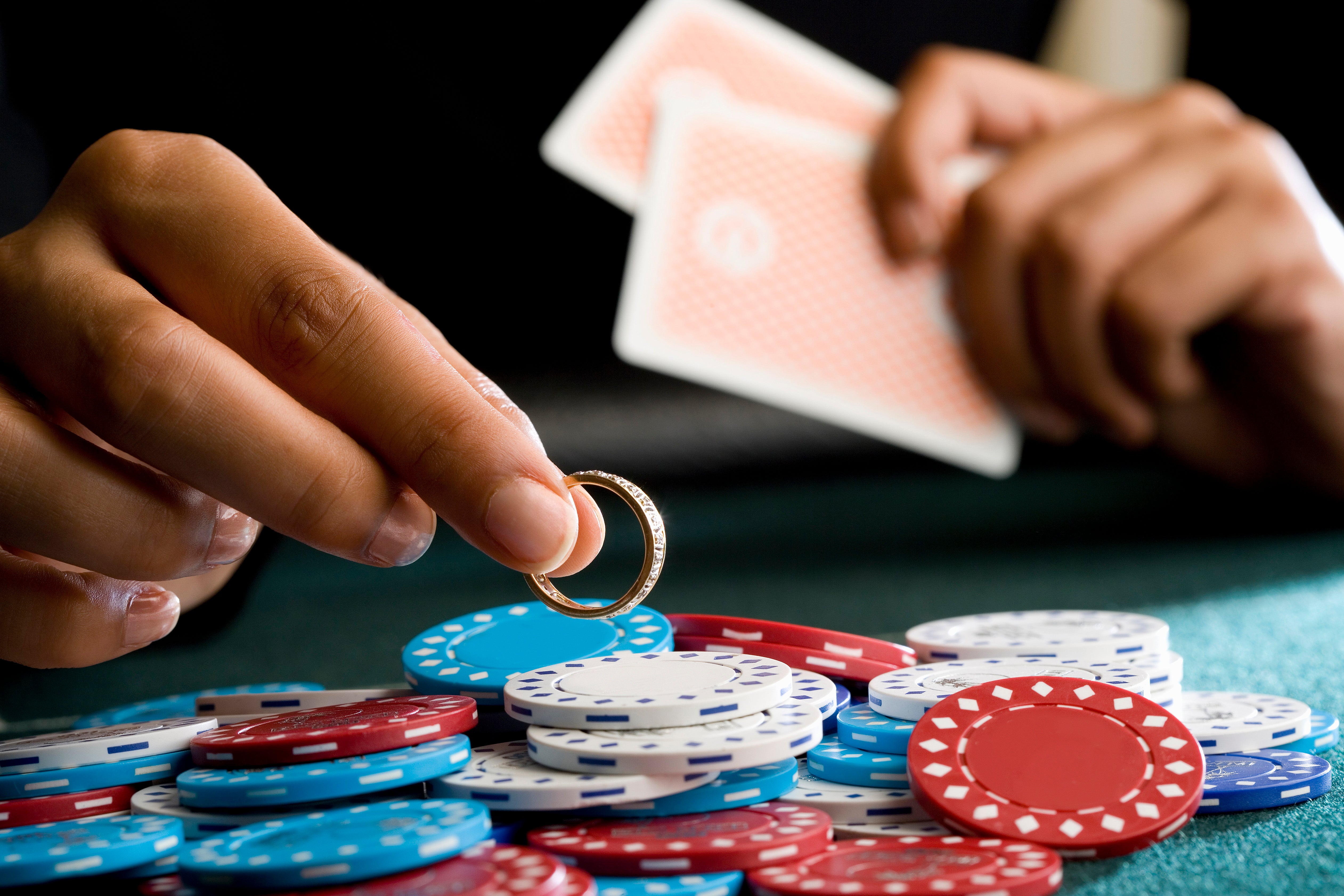Gambling doesn't just affect your wallet. It impacts your relationships, health, and wellbeing. Individuals who are addicted to gambling tend to have worse health due to ingesting caffeine, cigarettes, alcohol, even other [and illicit] substances. It can also negatively affect your mental health.
A gambling addiction occurs when a person continues to gamble despite negative effects that may impact their finances, relationships, or well-being. Gambling addiction involves compulsions to seek out gambling, betting, and wagering, and the end result can be devastating for the gambler as well as his or her family. Gambling Good for your Brain HealthStatus Team440 As we get older we stop using parts of our brain and these areas become weaker and can lead to faster senility, but there are things that can help slow down this process and kelp keep your brain strong well into the latter years of your life.
Gambling causes measurable, objective changes in your brain chemistry. People think they have a lot of control over their actions and feelings, but the reality is this: Most of us are at the mercy of hormones in our brains that affect our decisions dramatically. The emotions you feel are chemical storms going on in your brain. A Brain Chemical That May Cause Gambling Addiction, or Bankruptcy Feb 21, 2012 11:43 AM By Christine Hsu A player checks his cards during the finals of the Russian Masters Poker Cup in the casino at the Azov-City gambling zone, some 90 km (56 miles) south of Russia's southern city of Rostov-on-Don, September 23, 2010. How Gambling Addiction Affects The Brain When one thinks of addiction, an inability to curb a craving for alcohol, heroin, cocaine, or other illegal drugs is usually what comes to mind. With these types of addictions, an individual develops a tolerance, then a physical dependency, and then can't stop using.


Gambling can cause anxiety, stress, depression, and even suicide. Riding the highs of a winning streak is intoxicating, but repeated losing sprees can take you down a dark road filled with negative thoughts and bad ideas. Friends, relatives, and associates of gambling addicts tend to notice a short fuse and increased irritability once any wagering takes over one's life. Irrational thoughts like 'I can break even if I increase my bets' or 'I am not down that much' can be the start of a snowball effect that leads to dire consequences. Having unwanted thoughts or any psychiatric disorder related to problem gambling can lead to individuals taking matters into their own hands.
Icy wilds slot machine free play. Irrational thinking becomes extremely detrimental gambling leads to self-medicating oneself to cope with their benders, losses, or general frustration. Common effects from drug ingestion (including alcohol, nicotine, and caffeine) include abnormal heart rate and blood pressure, hangovers, blackouts, and deficient immune systems [which can lead to easily acquiring colds, infections, viruses, and other sicknesses]. In some cases, deadly diseases can come from intravenous drug use or uninhibited sexual acts. These illnesses can include Hepatitis B, Hepatitis C, HIV and many others.
Although not all gamblers drink or take drugs, it is a common combination. Casinos offer free drinks for all of their guests over the age of twenty-one. Whether the drink be alcoholic or simply contain caffeine (i.e. Red Bull or coffee), it can increase the amount of time that you gambler. It can also lessen your inhibitions leading to risky decisions while gambling in games ranging from poker to craps. Consuming alcohol on a regular basis can lead to Cirrhosis (liver disease), heart attacks, brain damage, diabetes, and cancer. Habitual gambling and drinking can also lead to an increase in criminal activity and a decrease in work productivity.
To view NJ gamblers anonymous meetings, visit http://800gambler.com or call our 24/7 gambling help hotline at 1-800-GAMBLER today. We are here to help… one day at a time.


Gambling can cause anxiety, stress, depression, and even suicide. Riding the highs of a winning streak is intoxicating, but repeated losing sprees can take you down a dark road filled with negative thoughts and bad ideas. Friends, relatives, and associates of gambling addicts tend to notice a short fuse and increased irritability once any wagering takes over one's life. Irrational thoughts like 'I can break even if I increase my bets' or 'I am not down that much' can be the start of a snowball effect that leads to dire consequences. Having unwanted thoughts or any psychiatric disorder related to problem gambling can lead to individuals taking matters into their own hands.
Icy wilds slot machine free play. Irrational thinking becomes extremely detrimental gambling leads to self-medicating oneself to cope with their benders, losses, or general frustration. Common effects from drug ingestion (including alcohol, nicotine, and caffeine) include abnormal heart rate and blood pressure, hangovers, blackouts, and deficient immune systems [which can lead to easily acquiring colds, infections, viruses, and other sicknesses]. In some cases, deadly diseases can come from intravenous drug use or uninhibited sexual acts. These illnesses can include Hepatitis B, Hepatitis C, HIV and many others.
Although not all gamblers drink or take drugs, it is a common combination. Casinos offer free drinks for all of their guests over the age of twenty-one. Whether the drink be alcoholic or simply contain caffeine (i.e. Red Bull or coffee), it can increase the amount of time that you gambler. It can also lessen your inhibitions leading to risky decisions while gambling in games ranging from poker to craps. Consuming alcohol on a regular basis can lead to Cirrhosis (liver disease), heart attacks, brain damage, diabetes, and cancer. Habitual gambling and drinking can also lead to an increase in criminal activity and a decrease in work productivity.
To view NJ gamblers anonymous meetings, visit http://800gambler.com or call our 24/7 gambling help hotline at 1-800-GAMBLER today. We are here to help… one day at a time.
How Gambling Affects Your Brain Tumor
Biological Factors Addictions are known to activate the culmination of sites in the brain that make up the ‘reward centre' which is responsible for feeling happiness or pleasure through the release of dopamine (Linden, 2011). After repeated exposures, receptors in the brain build a tolerance towards the addiction meaning that there is a need for increased stimulation to provide a similar ‘high'. Eventually behaviour patterns develop so as to avoid withdrawal. At this point addiction is occurring and symptoms should be observable. Like other addictions, it is believed that IAD causes a release of dopamine in the nucleus accumbens (Ko et al., 2009). It must then be discussed why certain behaviours or substances activate the reward centre resulting in addiction. It has been agreed that, much similar to gambling addiction, Internet addiction functions through a variable ratio reinforcement schedule (Young, 2011). However, it is also is theorised that those who use the Internet or other similar technologies experience various rewards that are unpredictable in nature, depending on the application they are using (such as: video games, emails, social media, pornography, message boards and texting). Paired with the mood altering content of the application the reward activation is increased. Examples of mood altering content include video games (social inclusion, achieving tasks unobtainable in real life), pornography (sexual gratification), and online